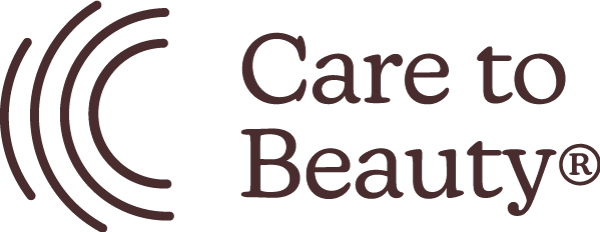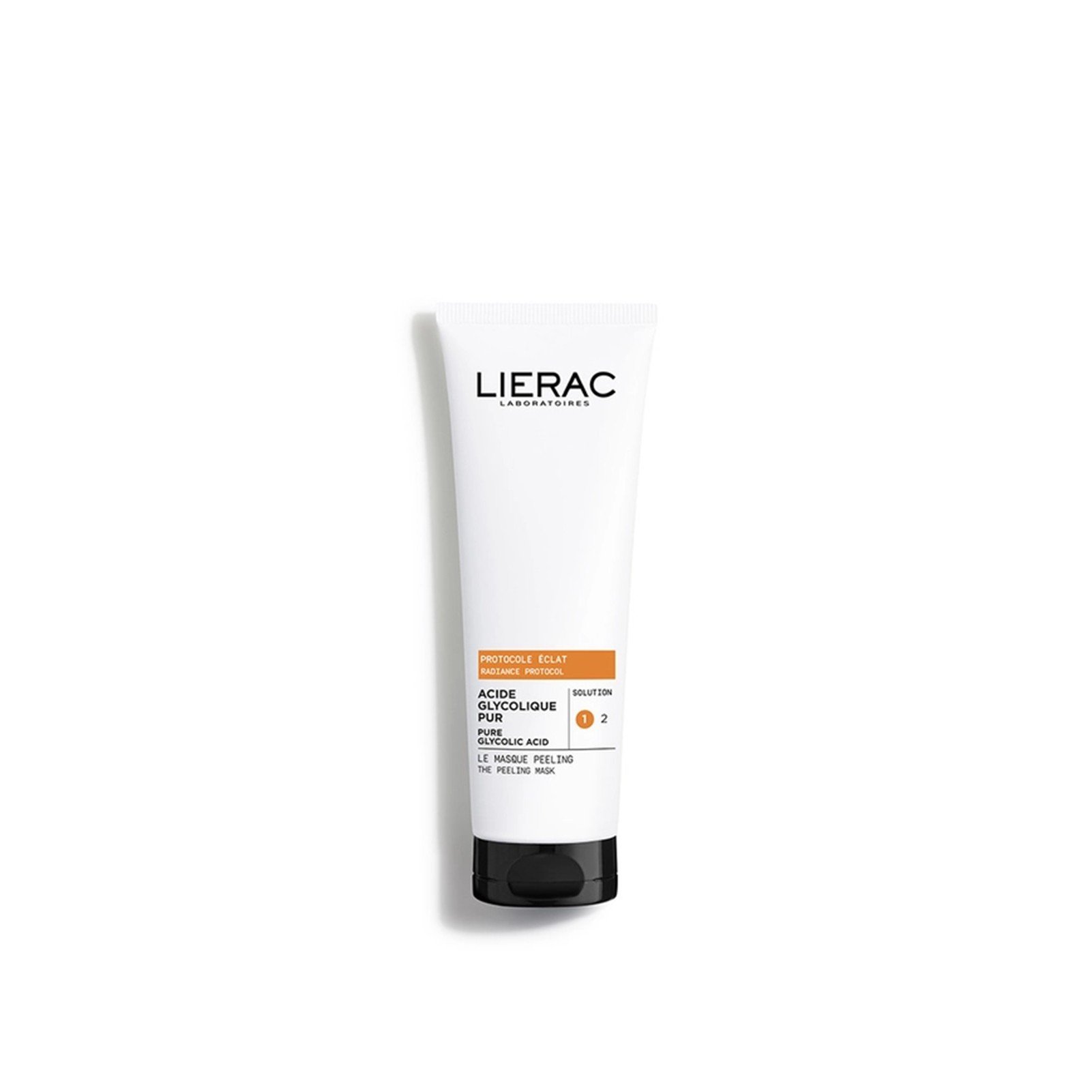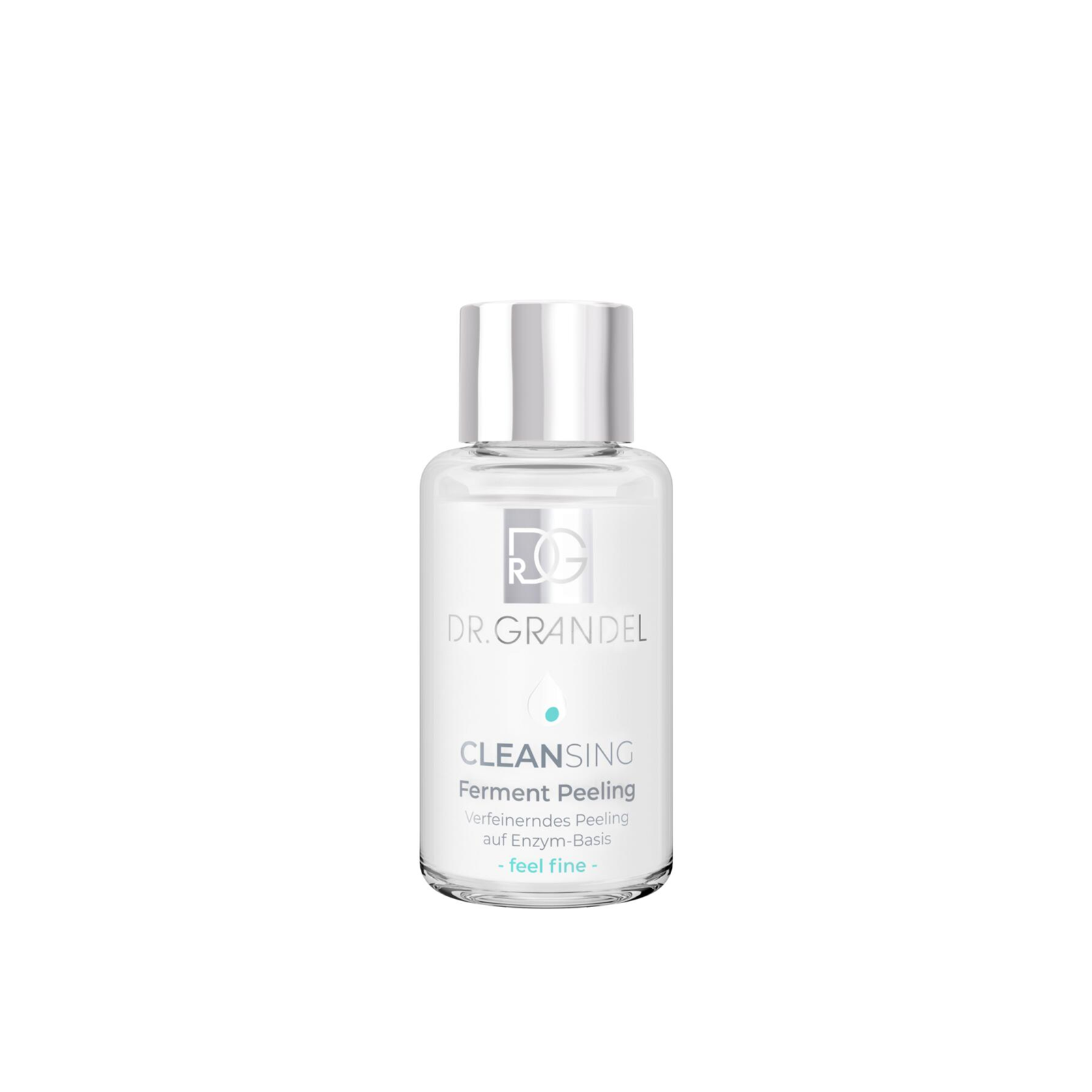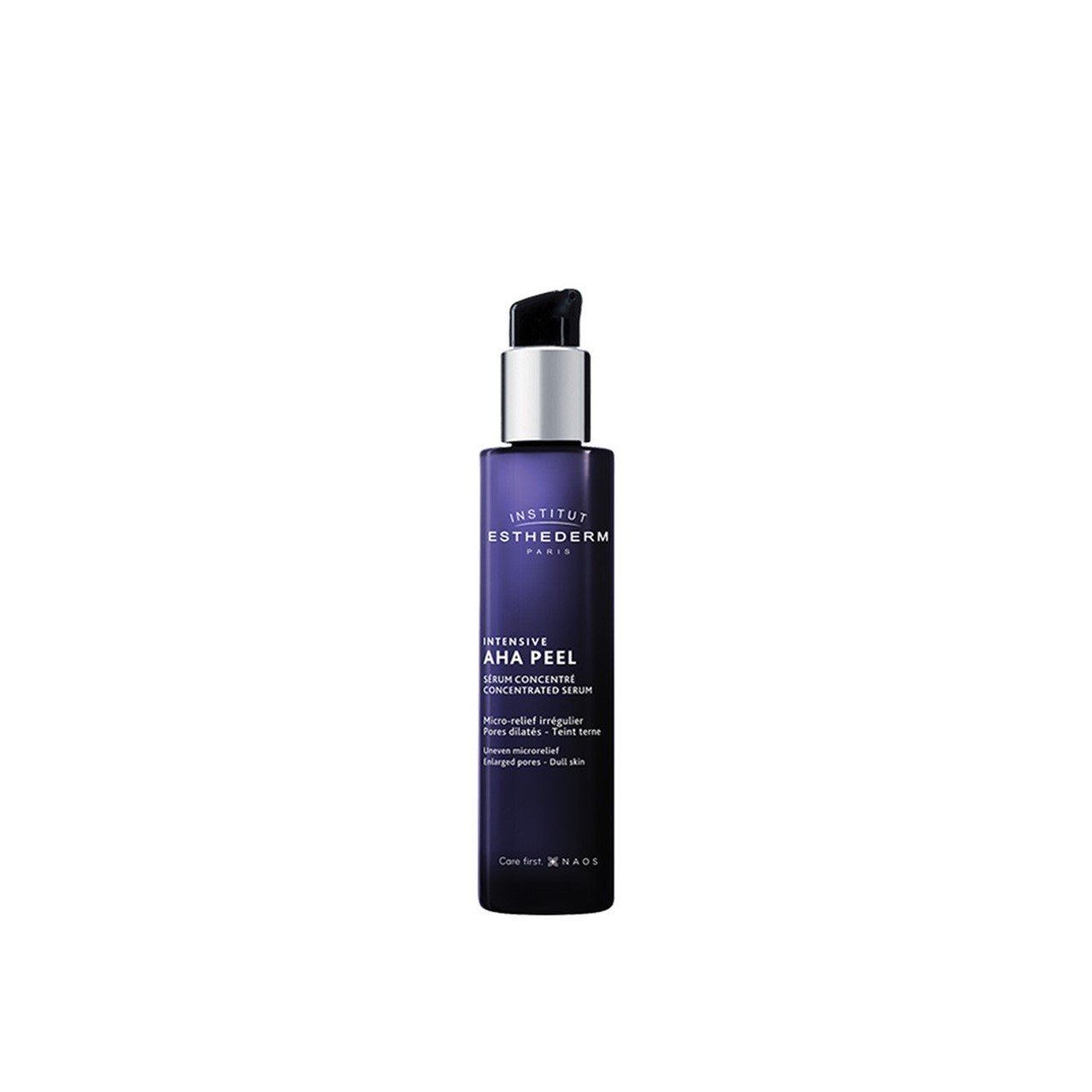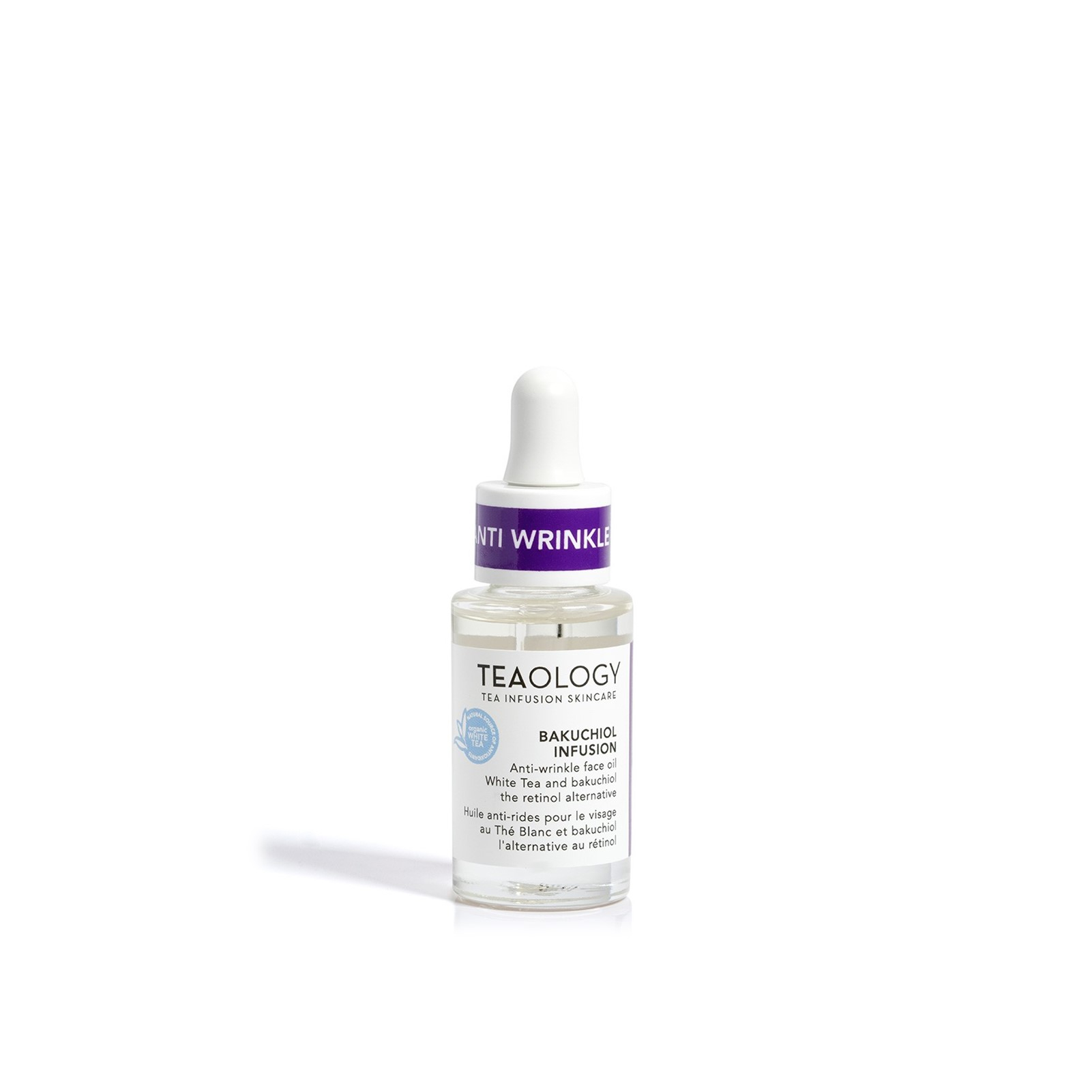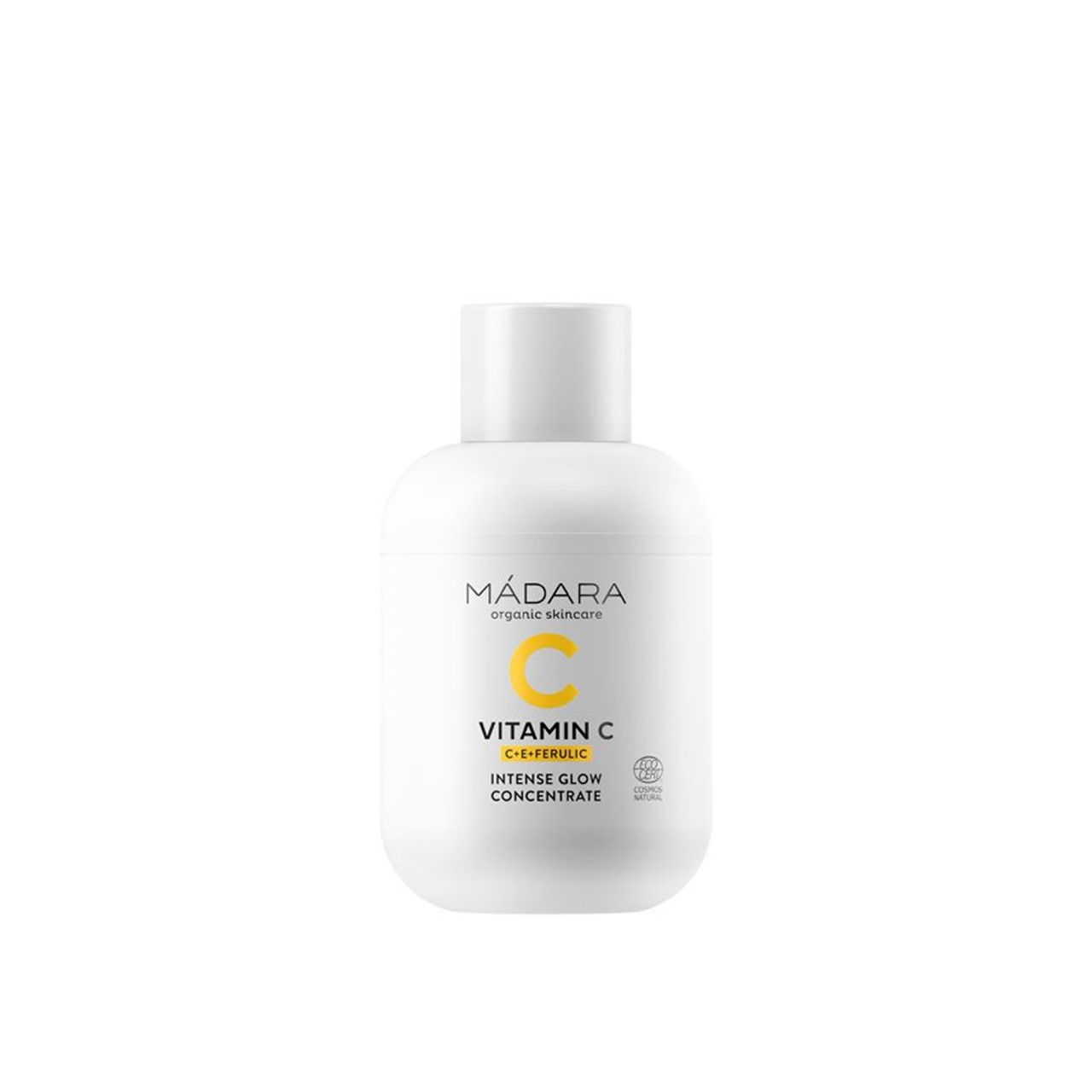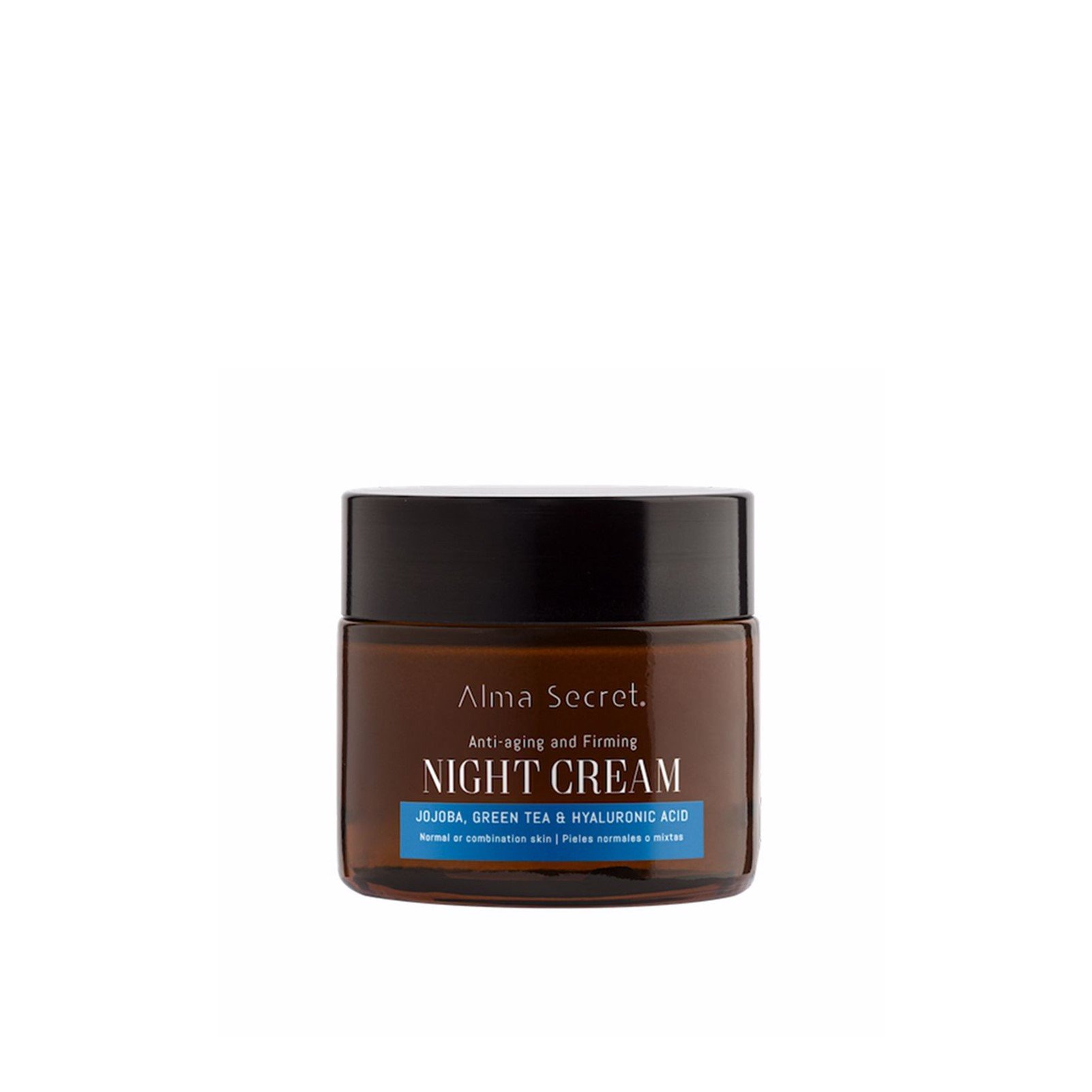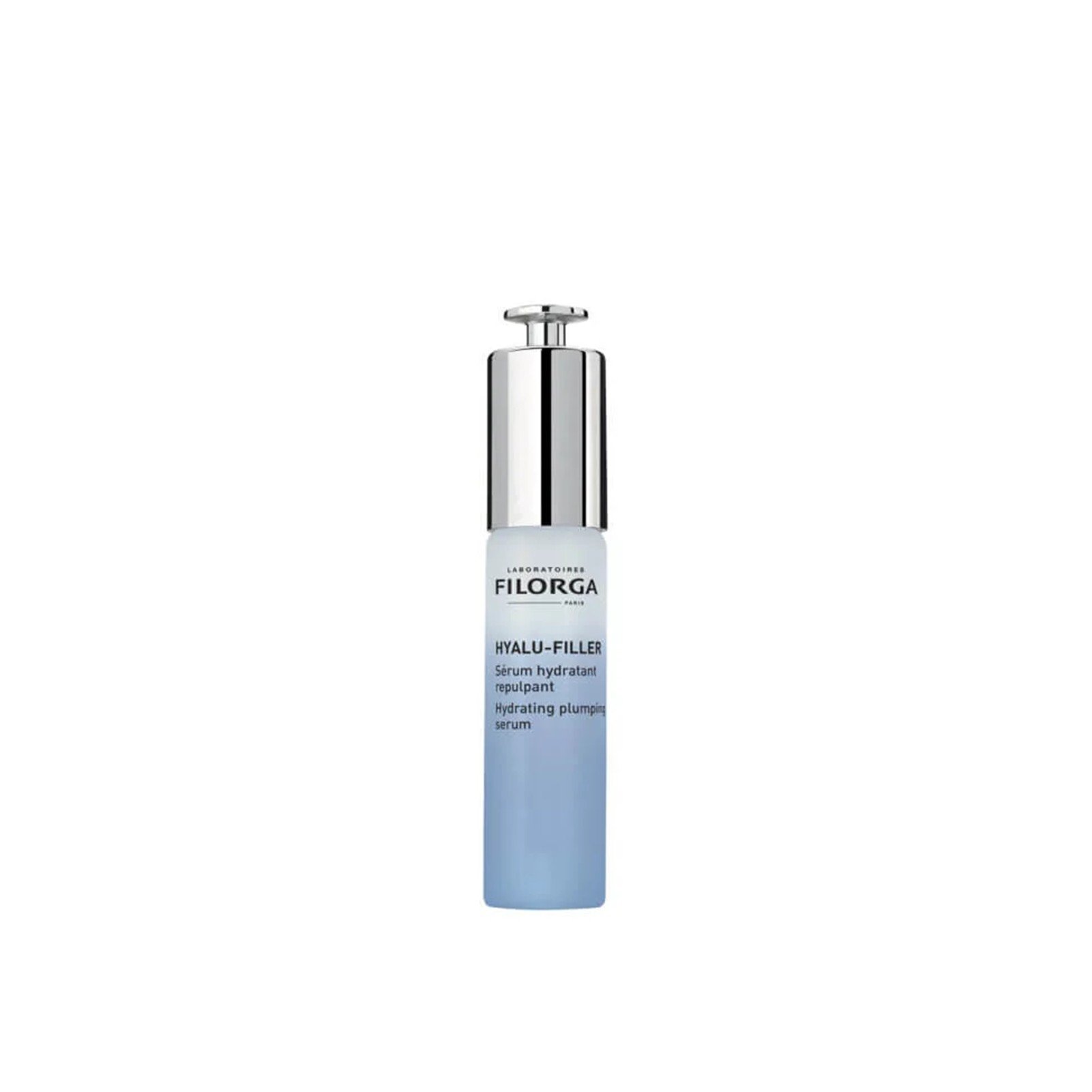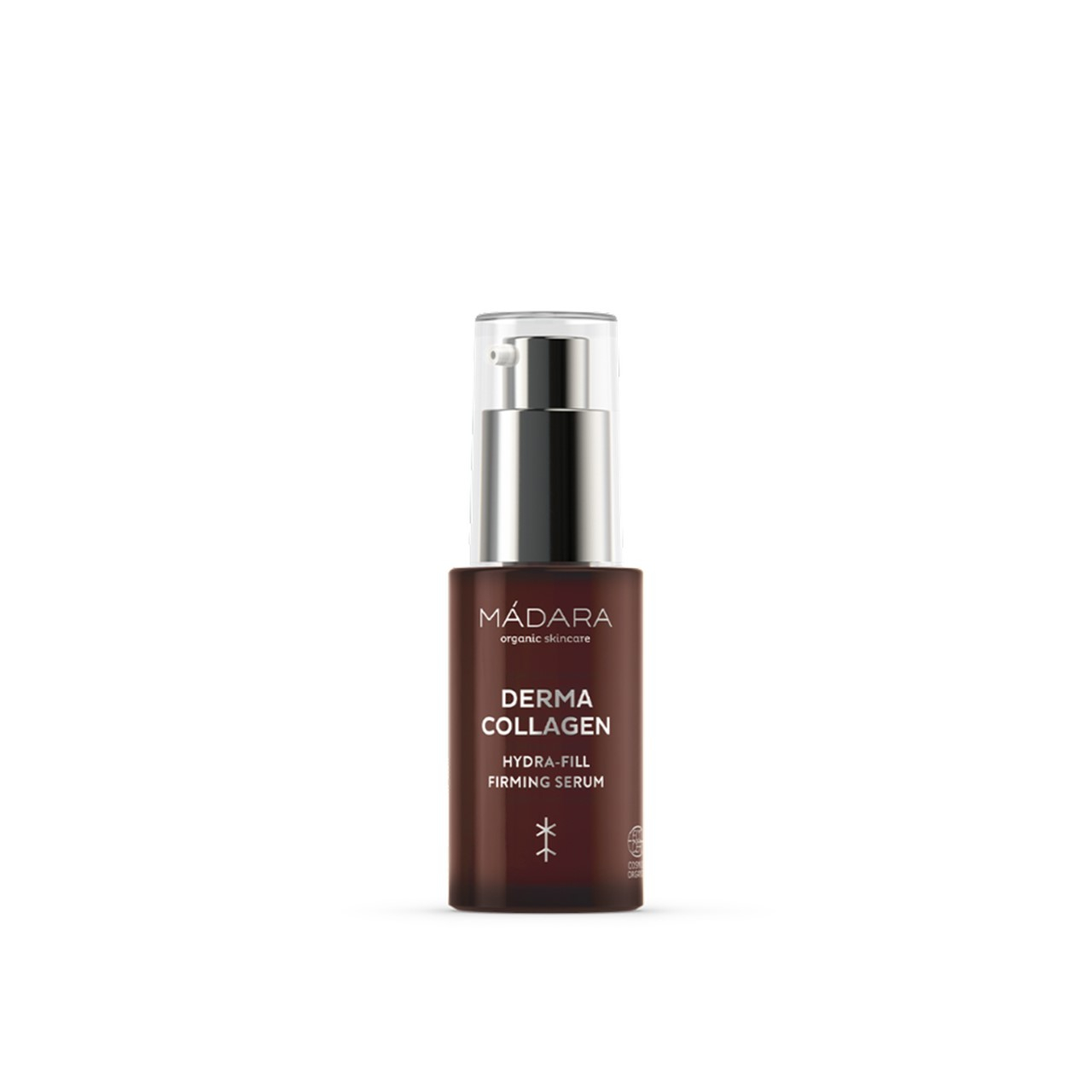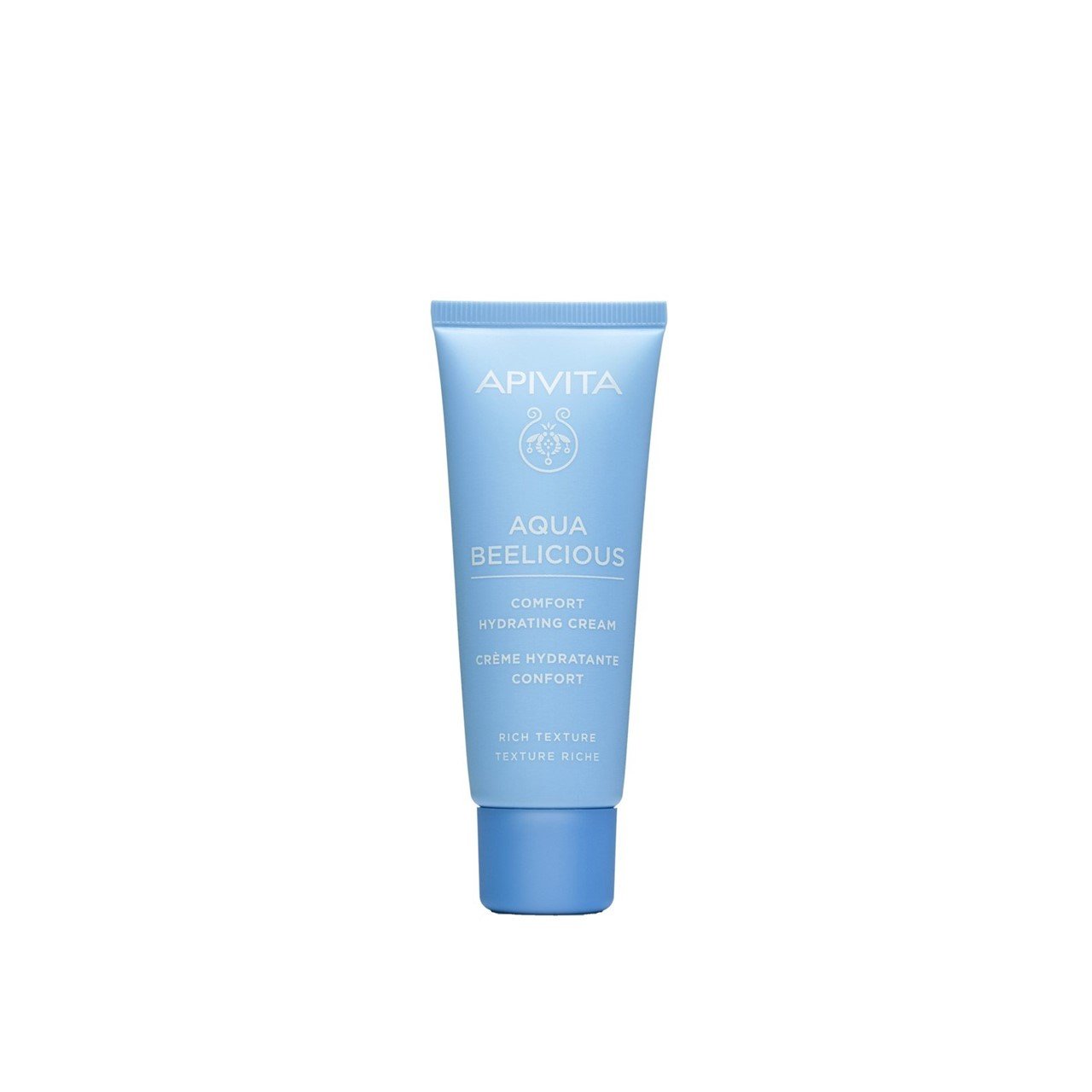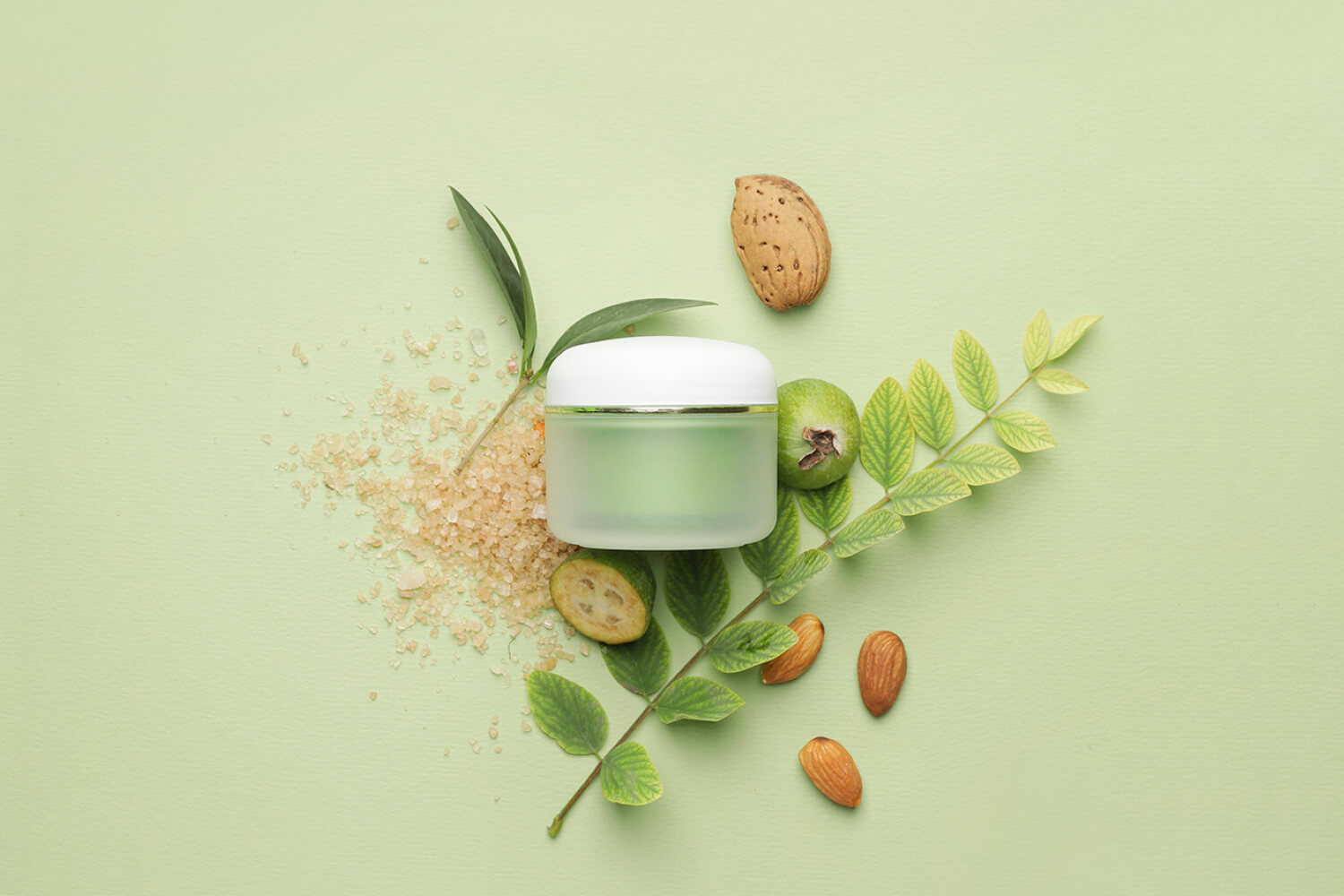
Navigating the world of natural skincare isn’t easy, and discovering which ingredients are natural is not always very straightforward. Do not be fooled by sciencey, long names, as the name of an ingredient has nothing to do with its origin and safety. Even some hard-to-pronounce ingredients are totally natural and, as all ingredients used in European formulas, totally safe to use. If you’re looking to boost your skin with natural anti-aging skincare ingredients, we’ll help you learn how to spot them in the wild—or over the counter!
On this post:
Natural exfoliation that enables anti-aging results
You don’t have a proper anti-aging skincare routine without exfoliation—you need the power of exfoliating actives to refine skin texture and allow anti-aging actives to do their job. If you’re going for natural anti-aging skincare ingredients, there is some good news for you, as almost all of the main acids are of natural origin. Let’s run by the main characters here:
Glycolic acid
Glycolic acid is naturally made by plants—it’s found in sugar cane as well as some fruits. This natural alpha hydroxy acid (AHA) works hard to remove the top layers of dead skin cells, transforming a dull complexion with a natural glow in a few applications. Glycolic acid also seems to help reverse sun damage to the skin. As we’ve highlighted in our post entirely dedicated to the wonders of glycolic acid, it “promotes a smoother skin surface. As it refines the skin texture, it also helps to diminish the appearance of fine lines and wrinkles.”
Malic acid
Malic acid was first isolated from—get ready—apple juice. This AHA is also found in certain fruits and wines and it’s used in foods and cosmetics, and sometimes as medicine. As for skincare, it works to brighten the skin while visibly enhancing the skin texture.
Salicylic acid
salicylic acid, the most famous BHA (beta hydroxy acid), can be found in the bark of white willow (Salix alba) trees. Even though it is more often associated with acne treatments, it’s also a powerful agent to include in peeling formulas that help with age spots. You may have your texture refining products while keeping it natural!
Bromelain
Bromelain, derived from pineapple, is a gentle and effective exfoliant that helps remove dead skin cells as well as promoting a smoother and brighter complexion. Thanks to its restoring and revitalizing abilities, it can be a valuable addition to your list of natural anti-aging skincare ingredients.
Papain
Papain—as the name suggests, from papaya fruit—is an active that grants a light exfoliation. Have you ever heard of exfoliating enzymes? That is just exactly what they are. By removing excess dead skin cells, it visibly improves skin texture.
Natural anti-aging skincare ingredients
If you want to pair your natural exfoliants with powerful anti-aging actives, we can tell you a bit about some of the best. They’re naturally powerful and should work wonders with your skin!
Bakuchiol
As you may already know, the world-renowned retinol alternative bakuchiol is derived from a plant. Bakuchiol has been shown to reduce the appearance of lines, wrinkles, and dark spots, all the while promoting skin elasticity and firmness. But it is far from being the only one…
Vitamin C
Starting our journey in the natural antioxidants is the world wide famous vitamin C (we know, this one isn’t unexpected). A star ingredient to “treat and prevent changes associated with photoaging”, vitamin C supports collagen synthesis while protecting the skin from oxidative stress. Ideal in your skincare regardless of your age (except if you, as this writer, have rosacea), vitamin C works wonders on its own and combined with other natural anti-aging skincare ingredients.
Ferulic acid
Ferulic acid, naturally found in grasses like rice, wheat, and also oats, is a powerful antioxidant. It helps to stabilize unstable actives such as our beloved vitamin C—and that’s why you see so many formulas combining vitamin C and ferulic acid. Ferulic is also able to boost any formula on its own, as its antioxidant action helps minimize UV damage.
Coenzyme Q10
Did you know that Coenzyme Q10 is also natural? This anti-aging superstar occurs naturally in the human body, but it’s also available in many of the foods we eat. As you can see, you won’t need to struggle to find anti-aging skincare ingredients, even if you’re going all-natural with your skincare routine.
Squalane
Last but not least, we have squalane, which can be found in olives, rice, and sugar cane. While squalane isn’t an anti-aging active, per se, it is one of the best moisturizers in the market. Given that keeping the skin’s moisture barrier intact is one of the first steps to keep it looking young, we totally had to mention it.
& some ingredients that can be natural, but not always
There are some ingredients, however, that might have different origins. Two worth mentioning when looking for anti-aging skincare are the hyaluronic acid and glycerin—both can be of natural origin or derived from synthetic procedures. Considering that these two are some of the best ingredients ever for the skin—as they are essential to keep the skin hydrated as well as a healthy skin barrier—we think they’re worth checking out, even if they’re not pure anti-aging actives. Remember that you will not find this information on the ingredient list, but a quick read-through of the product’s description should tell you if an active is of natural origin.
To make your life easier, we’ve selected a few products with all-natural hyaluronic acid and glycerin below:
Want to know more about the natural skincare world? Then try our favorite natural products that visibly improve your skin!
Professional Makeup Artist & Beauty Writer
